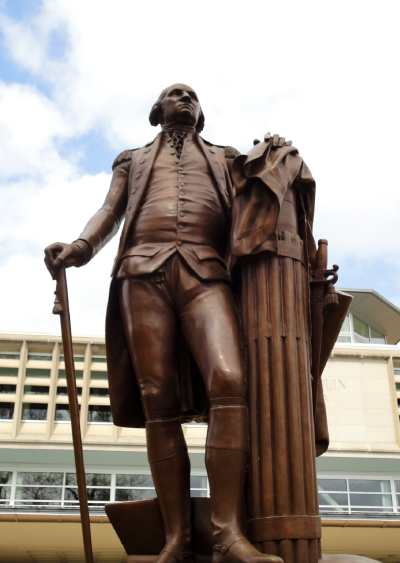Wash U Isn’t Really In St. Louis
BY CANDICE LOVE
Unlike most students at Wash U, I grew up about ten miles away from campus. I spent a lot of time next door in Forest Park, admiring the zoo, art, and architecture. St. Louis has always been my home, and when I would think of the things I was most proud of in my community, I’d think of the Cardinals, the Gateway Arch, and the symphony orchestra. But up until I decided to apply, I was completely unaware of the fact that the students at Wash U were some of the smartest in the nation. I did not realize that Wash U had top-tier programs and faculty, or that it was even prestigious at all.
I am not concerned with Wash U having a bad reputation in the St. Louis community; I am concerned that we do not have enough of a good reputation. Sure, as a private school, the university’s network needs to be primarily outside of Missouri, but in reality, a lot of St. Louis area residents view the university as a guarded tower on top of a steep mountain that only the most elite can climb. Which is why telling local friends and family that I attend Washington University doesn’t usually spark an inspiring response. At most I’ll hear, “That’s a good school.”
This modest reputation isn’t necessarily a bad thing, but can you imagine growing up in Cambridge and not knowing much about Harvard, or growing up in South Bend and never hearing about Notre Dame? Sure, Wash U doesn’t have the historical legacy of Harvard or the athletic prowess of Notre Dame, but is the university really doing the best it can to build a connection with local residents? All of the freshmen come together in August to paint the walls of St. Louis elementary schools, but since then, I wonder how many of us have actually ventured off campus, past the Delmar Loop and Central West End, to be more engaged with what is for most of us a new home. I wonder if local residents will ever see the university and its people as a part of their community. This could easily start if students expanded their experience past the Wash U bubble.
“Never go north of Delmar,” is the first terrible piece of advice that I was given as a Wash U student. I recognize that the people who told me this were just trying to protect me, and I do acknowledge the potential dangers in this area. But this advice was given at the price of alienating arguably the most important people in the St. Louis community: the suffering, the starving, and the hopeless. The ones who live in areas that the police have stopped caring about. The ones that need the help of people like us who will have the power and resources in the future to do something about the situation north of Delmar. But instead, most students take the misguided advice and avoid most of the city, believing through word of mouth that the circumstances there are bad, but never seeing for themselves just how bad they are. Everyone should certainly be smart and cautious if they decide to go to North St. Louis, but everyone needs to go. Not all of the residents there are criminals waiting to mug or murder us. Most people are just trying to survive, and trying to look out for everyone else in their neighborhoods who is just barely surviving.
We shouldn’t look at the city as trouble, but as potential. We need more Wash U students to help in ending the distance between the university and our surrounding community, because we have the power to ensure improvement in the areas hit hard by crime, failing schools, and suburban flight. It should no longer be an option for us to play it safe in our sheltered piece of the city for four years before moving on to another place, no more aware of this situation than when we first arrived. We should all try to get to know someone who lives in St. Louis with no affiliation to Wash U, to let residents know that we are very much a part of this community. Maybe then will we be connected with this beautiful city more than ever, and we can truly call ourselves a part of St. Louis.
